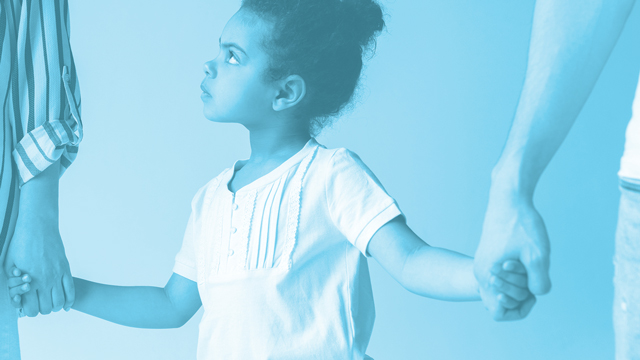 The decision is final, and we are getting a divorce. My partner and I are working with our lawyers and a counselor to figure out our custody arrangement. Our kids are nine and eleven. Should we involve them in this process?
The decision is final, and we are getting a divorce. My partner and I are working with our lawyers and a counselor to figure out our custody arrangement. Our kids are nine and eleven. Should we involve them in this process?

When you’re navigating rough waters, it’s important to have anchors to keep you steady; a knowledgeable attorney and a good family counselor are both important. During divorce, you will also need the standard that eclipses all others: “What is in the child’s best interest?” Nearly all courts base child custody decisions on this rule. In my opinion, it is not in your child’s best interest to become entangled in the often-difficult and emotional decision about custody.
One of the most important missions you will need to accomplish with your children is to ensure that they feel loved and secure with no feelings of guilt that they somehow caused division between you and your partner. Young children, including pre-teens like yours, are particularly susceptible to this feeling. I believe that if young children are involved in custody decisions, they may feel pitted against one parent or the other. Or they may not want to disappoint a parent if they are asked to choose how and with whom they spend their precious childhood moments.
Custody decisions often create stress and disagreement between parents. Experts say that witnessing this animosity can be emotionally damaging to children in the long-term. It sounds like you are working toward creating a healthy new normal for your children. So instead of asking them to weigh in on custody, find time with them one-on-one to listen and help them process what’s happening. As Christina McGhee, a renowned divorce coach says, “How your kids feel about divorce is not necessarily how you feel about it. They will need to feel their own feelings.”
While I am not an expert regarding divorce law, I have learned from a colleague who works tirelessly as a guardian ad litem that in the Code of Virginia, the judge may consider the preference of a child when making a decision for custody. However, it is only “if the court deems the child to be of reasonable intelligence, understanding, age, and experience to express such a preference.” In fact, it rarely happens that a child younger than fourteen can weigh in, and that is only in some states. This protects your children since they would find it hard to pull themselves out of their own complicated pre-teen world to truly understand the ramifications of custody decisions.
So, let’s look at what would be a more developmentally appropriate way to involve them. For instance, encourage them to design and shop for their new room in the other parent’s home. Have an outing in which you drive or bike to the other parent’s home and explore new and fun things to do in that area. This empowers your children as they carve out their new space. Once you’ve settled into a routine, you may discover a new way to connect during family meetings that are helpful during drop-off between parents.
At this age, your children’s job is to grow and learn who they are and where they belong in life. If that is in two homes, with two loving parents who can set aside their differences in the best interests of their children, most experts say they have a very good chance of growing up to face life’s challenges as healthy and resilient young adults.




